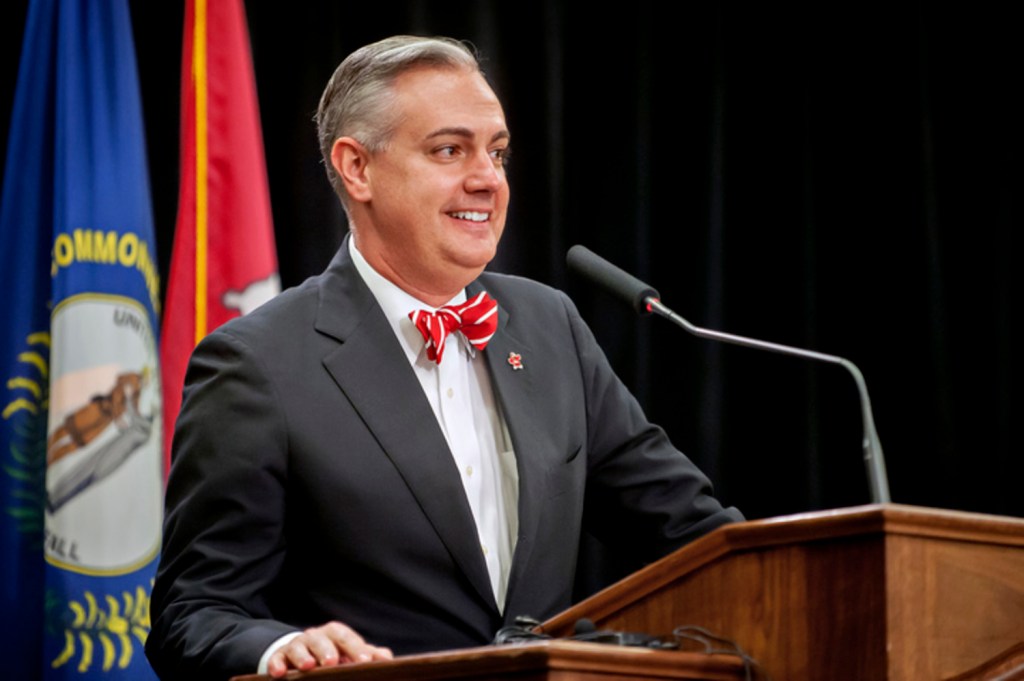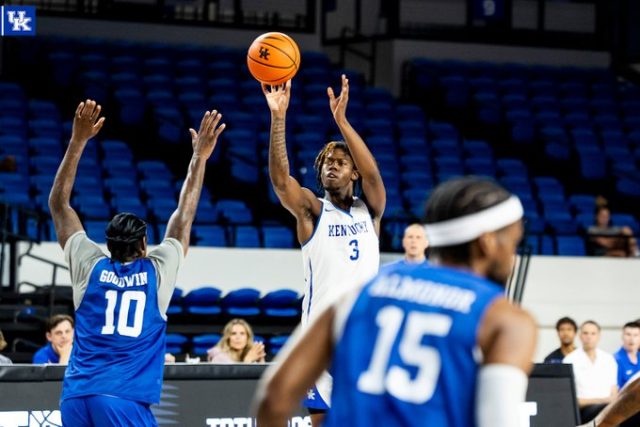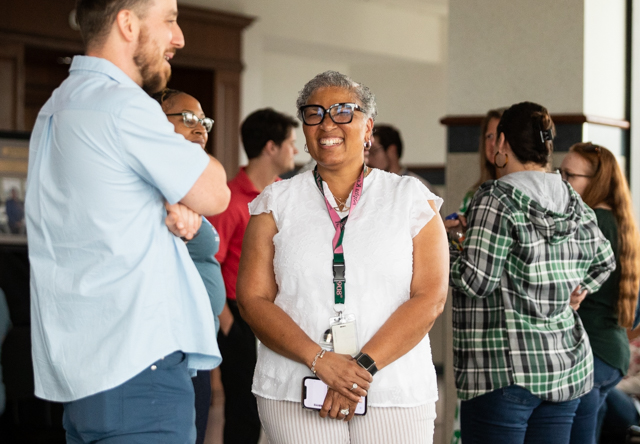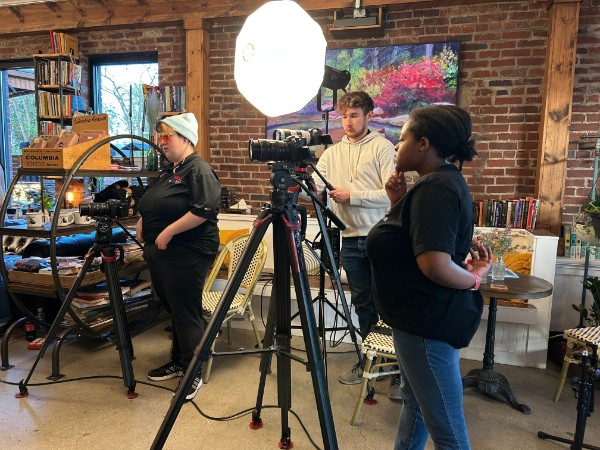Caboni good fit as WKU’s next president
Published 9:00 am Friday, February 3, 2017

- Western Kentucky University's next president Timothy Caboni speaks Friday, January 27, 2017, during an announcement at WKU's Augenstein Alumni Center. (Bac Totrong/photo@bgdailynews.com)
When Western Kentucky University President Gary Ransdell retires in June, it will mark the close of a transformative chapter in the university’s history and the arrival of a new beginning.
We believe that Timothy Caboni, the current vice chancellor for public affairs at the University of Kansas, is the best choice to lead WKU into a new, uncertain chapter of its history when he officially starts the job on July 1.
Trending
We realize that some at WKU, particularly faculty members, have been vocal with their concerns that the presidential search process should have been more transparent and inclusive in hearing their voices.
Among them is journalism professor Mac McKerral, who addressed the Board of Regents last semester during a meeting and asked the process be open to the public. McKerral repeated his concerns at a University Senate meeting last week as Caboni was visiting campus and speaking to its constituents.
“We’ve been left out of this process,” he told faculty senators at the meeting. “The sad part of that is that we don’t know who the other candidates were.”
Regardless of how one feels about how the search process was conducted, that was a decision made by the Board of Regents and not Caboni.
In fact, Caboni seems to show a commitment to transparency. When he was a finalist for president positions at Valdosta State University and Georgia Southern University in the fall and spring last year, Caboni visited campus publicly and made no secret about who he was.
We believe that critics of the search process shouldn’t penalize Caboni for how it was conducted. Instead, Caboni should be given the benefit of the doubt when stepping into his new role as WKU’s 10th president. Caboni has already gone out of his way to listen to the concerns of students, faculty and staff across all of WKU’s campuses.
Trending
Caboni has repeatedly said he plans to hold office hours in the Downing Student Union for any student to raise concerns or issues on campus. Caboni has also described a vision for leading the university by getting out of his office and hearing from people on the ground.
“I tend to do most of my work in person and beat a path to everyone’s door from my door,” he told the Daily News in an interview after he was named president last week. “That face-to-face interaction is crucial to building trust.”
Although Caboni hasn’t had time to put his ideas into action, he has communicated them clearly to those at WKU and in the larger community on multiple occasions. He’s said that before the university can prioritize raises for faculty and staff, the university has to do more to recruit and retain its students, which has been a perennial hurdle facing WKU.
“Twenty-five percent of our students leave after their first year,” Caboni said during a campus forum last week. “That’s not acceptable. We must do better as a community.”
That urgency has also been echoed by Ransdell, who has said “what we’re doing just is not sufficient” and that changes must be made.
We believe that Caboni is the best person to meet that challenge going forward. His experience extends beyond just being the chief spokesperson for the University of Kansas. Caboni has been a faculty member and administrator and has published a body of research on university fundraising and support. That experience will no doubt come in handy as the university sets its sights on a new capital campaign.
Although it isn’t yet clear what role his wife, Kacy Schmidt Caboni, will play, she’s also a capable fundraiser. At the University of Kansas, she participated in a campaign to support a $70 million school of business – all done with private support. Her experience could prove critical in WKU’s plans to build its own business college.
With the myriad challenges facing WKU in today’s higher education landscape, we believe that the level of trust and cooperation between those in the WKU community will determine the level of success it has. That same trust should be extended to Caboni, who has done right by the university and made a good-faith effort to make WKU’s first step into the future a graceful one.







